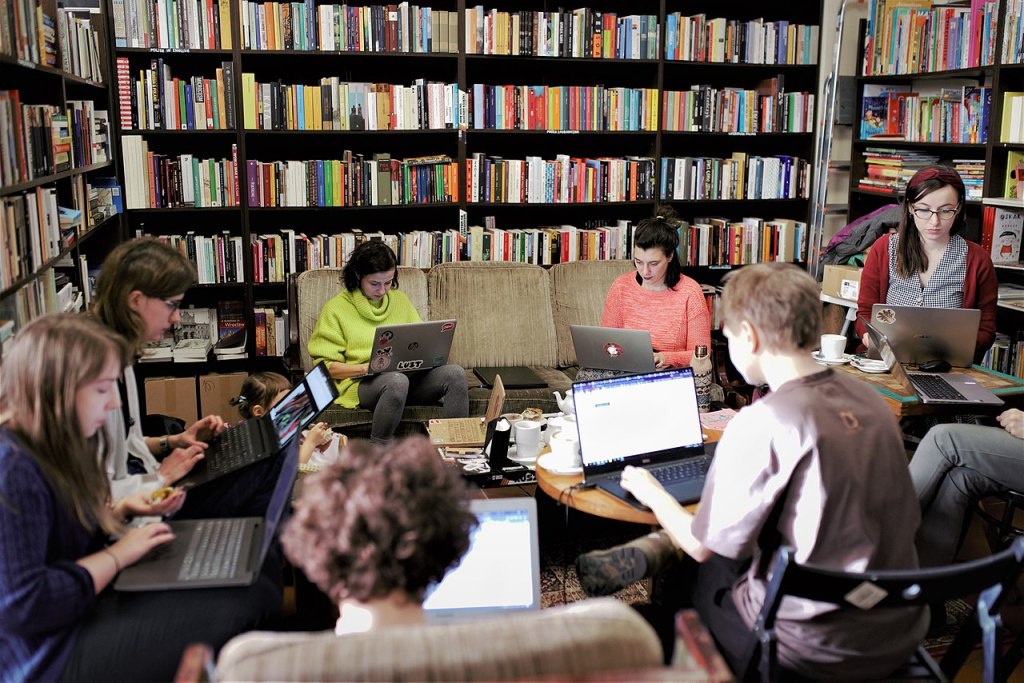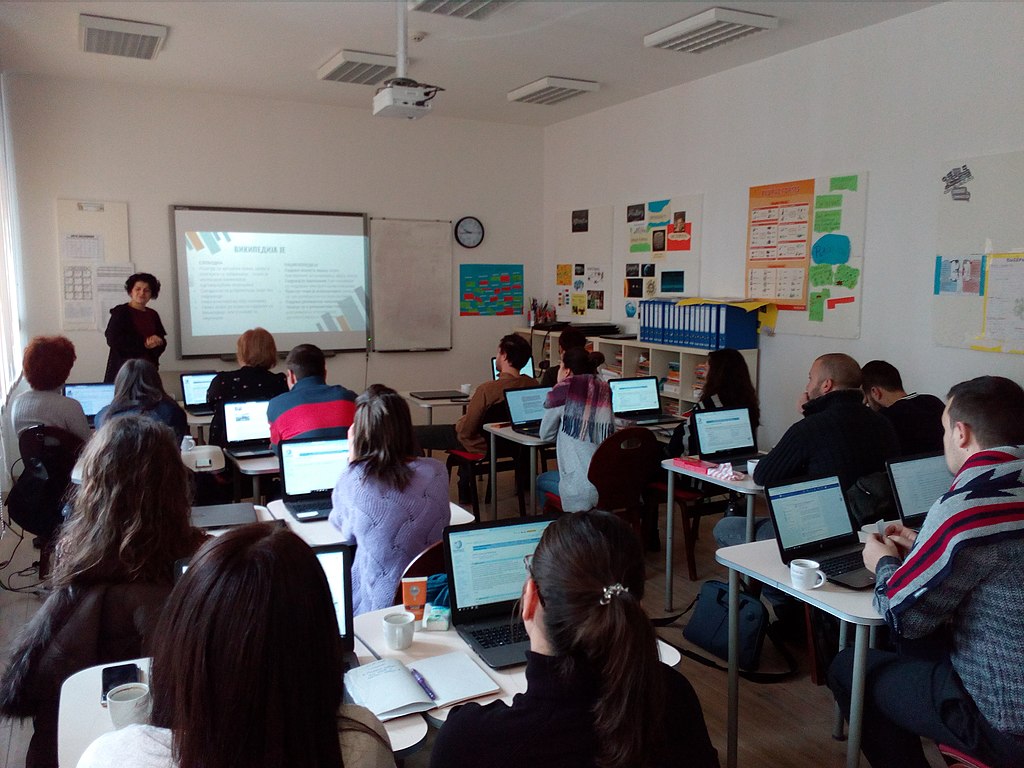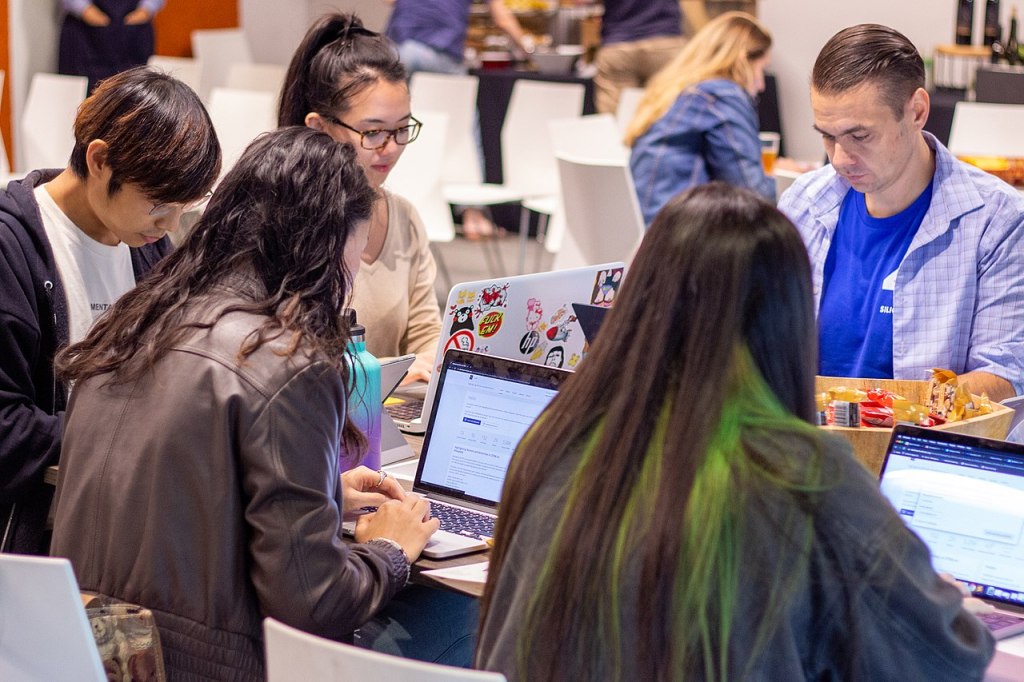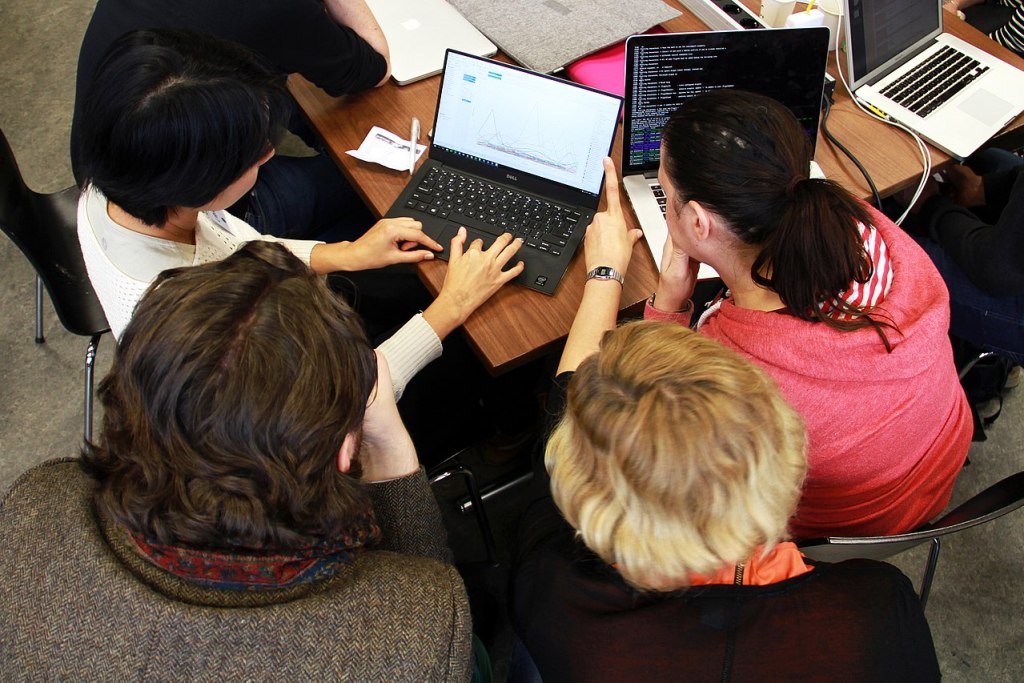
Celina Strzelecka – CC BY-SA 4.0
A recent article has been published in one of the top ethnological journals in Poland. The paper, entitled, “Wikipedia and Its Sister Projects as Important Elements of the Teaching and Learning Process – a Review of the Global Situation” presents the general idea of Wiki-education and the situation of educational programs based on Wiki(p)media tools and capabilities in four countries.
The authors are Nebojša Ratković, Paul Jerchel, Pen-Yuan Hsing, and Klara Sielicka-Baryłka. You are invited to learn about the situation in Serbia, Germany, the USA, and Poland. Each part of this article has illustrations carefully chosen by the authors, and there is a list of references below each chapter: so dive in, learn, and feel joy. The journal Łódzkie Studia Etnograficzne is present in many databases like Scopus, EBSCO, DOAJ, etc. ISSN 2450-5544 is its serial number.
Collaboration effort
The editorial board asked the representative of Wikimedia Polska for a proposal for the publication, knowing the activities of the organization and its volunteers to date. The Polish Ethnological Society (the editor of the magazine) cooperated with the Polish GLAM-Wiki, and projects such as Ritual Year with Wikipedia [1, 2] and Ethnography of the Carpathians [3, 4], as well as Wiki-training and Wiki-classes with students at the faculties of Ethnology and Cultural Anthropology at various Polish universities, stimulated the ethnologist community to join the work on supplementing Wikipedia with content in the field of ethnography. Due to the educational potential of Wikipedia activities, it was decided to include the subject of Wikipedia in the volume.

Neboysha87 – CC BY-SA 4.0
In late February 2020, an invitation to co-author the article was sent to the Wikimedia Education mailing list. The response was quick: people active in Wiki-education came forward. Unfortunately, a few days later there was a global lockdown caused by a pandemic, the situation in countries began to deteriorate overnight, and some potential authors had to leave the subject of the publication due to personal circumstances. This meant that out of the 7 cases we were going to describe, 4 were left as a result.
Work began: we agreed on issues and deadlines with the editors, exchanged comments, and introduced corrections, consulting the coordinators of the entire initiative. Finally, we have to choose the illustrations and approve the text several times after the composition. Work on the article was completed in a situation of high stress due to the pandemic reorganization of the private and professional life of each of us. Our correspondence from that time is a testimony to the difficulty of writing a text for a scientific journal when the outside world has become unpredictable and taking so much focus and calmness needed for creative work: in e-mails, we asked about our health, wished ourselves and to the loved ones strength and safe passage through the pandemic.
Then there was waiting for the publication of a volume in which readers will also find now our joint article!

Jami (Wiki Ed) – CC BY-SA 4.0
Perspective from Poland
The report from Poland presents the situation of Wiki-education over the years: before and after the introduction of a special strategy for educational activities in Wikimedia Polska at the beginning of 2020. Examples of activities show the involvement of Wikipedians at libraries (#1lib1ref campaign), universities and schools (e.g. Wiki-School program), as well as their cooperation with cultural and national heritage institutions. In Poland, educational Wiki-activity is very often related to the GLAM-Wiki activities, which is also described in the article.
Perspective from Serbia
The section on Serbian involvement in Wiki-education shows how over a dozen years of activities in this field results in student satisfaction and increased teachers’ competencies by using Wiki tools in the teaching process. The data from the Wikimedia Serbia evaluation attracts attention and can be an important argument for the reader in planning their Wiki-activities in the school environment. An important part of the article is the report of the “Online Wiki Tools in Teaching and Learning” teacher seminar accredited by the Institute for the Education Improvement (founded by the Ministry of Education), which is currently in the next edition.
Perspective from Germany
The diversification of activities is noticeable in the German experience of Wiki-education. The article presents examples of meetings and actions directed at senior citizens (Silberwissen project, [Silver Knowledge]), scientists (MS Wissenschaft [MS Knowledge]), as well as people volunteering to reduce the gender gap on Wikipedia (Women Edit). Finding effective and attractive combinations of educational activities and GLAM-Wiki is confirmed in the article by initiatives such as GLAM on Tour, and Coding da Vinci programs.

Wladimir Raizberg (WMDE) – CC BY-SA 4.0
Perspective from the United States of America
In the part describing the experience of the USA, the aspect of academic writing draws attention: how it can be improved through the practice of Wikipedia editing and how to combine it with social commitment is perfectly illustrated by selected examples of activities provided by the Wiki Education initiative (e.g. Ada Lovelace Day or ecology course at Washington University Saint Louis with Wikipedia editing included). In the text, we can also find a justification for the thesis that working with Wikipedia helps in scientific interdisciplinary research.
Summary
We are particularly pleased because we were specially invited to co-create the volume by the Editorial Office represented by Prof. Anna Weronika Brzezińska from the Adam Mickiewicz University in Poznań, and the reviews we received during the work were very positive.
If you’re going to read an article, it’s worth noting that the first versions of the text were written just before the pandemic, and the final versions refer to the pre-pandemic situation. However, in a short conclusion, we mentioned the current situation in education in connection with COVID-19. You can download and read the whole volume no.59 here.

Can you help us translate this article?
In order for this article to reach as many people as possible we would like your help. Can you translate this article to get the message out?
Start translation